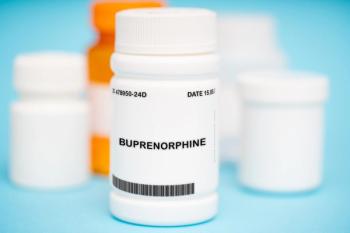
MTM slowly coming into focus
Medication therapy management (MTM) for Medicare patients is a first step that could transform the practice of pharmacy. The kinds of services the federal government requires under Medicare Part D beginning in January will spread into the commercial market. So will payment policies, procedures, and amounts.
Medication therapy management (MTM) for Medicare patients is a first step that could transform the practice of pharmacy. The kinds of services the federal government requires under Medicare Part D beginning in January will spread into the commercial market. So will payment policies, procedures, and amounts.
"The services provided to the elderly are a benchmark for the private sector," said Edwin Webb, director of government and professional affairs for the American College of Clinical Pharmacy. "MTM is an important step in recognizing that pharmaceutical care is about more than product," he reminded attendees of ACCP's annual meeting in San Francisco. "We must keep pushing to extend that recognition."
Jean-Venable "Kelly" Goode, associate pharmacy professor at Virginia Commonwealth University, was even more emphatic. "Where Medicare leads, private payers will follow," she said. "MTM is the greatest opportunity for pharmacy in decades."
Payment for MTM is also a question. Rather than providing direct payment for MTM, the act carves MTM payments out of general administrative fees paid for Part D. Those two provisions are both a barrier and an open door for pharmacy. On one side, prescription drug plans (PDPs) have a financial incentive to limit MTM costs by keeping R.Ph.s out of the loop. PDPs, which provide only Part D drug benefits, also have a financial incentive to keep drug product costs as low as possible.
On the other side, Webb noted, R.Ph.s are the most effective candidates to manage drug therapy costs with appropriate prescribing, increased use of generics, and so on. "We are not sure all PDPs have embraced this reality," he said. "Part of our job is to keep their feet to the fire."
But PDPs are only a portion of the Part D picture. The managed care segment, called Medicare Advantage, has different incentives. Managed care organizations' financial interest lies in controlling the overall cost of care, not just drug costs. That gives R.Ph.s an even stronger role, said Veterans Affairs regional pharmacy benefit manager Jan Carmichael. Increasing the drug spend on chronic conditions can dramatically reduce total care expenditures.
"There are billions of dollars at stake here," Carmichael said. "People at VA leave pharmacy alone because we save them so much money. We cost the system big dollars by getting more patients on certain drugs, but we save so much more that they see the light."
MTM gives other pharmacists the same opportunity, Carmichael said. The American Pharmacists Association commissioned a study by the Lewin Group earlier this year to explore MTM. The report noted that the Centers for Medicare & Medicaid Services expects MTM to include such familiar elements as patient health status assessments, formulating Rx treatment plans, evaluating patient response to drug therapy, and patient education.
In terms of pharmacy services, that means disease management, polypharmacy management, lab testing and screenings, wellness programs, and immunizations. "If you are seeing patients in any setting, you are already providing these services," Carmichael explained. "MTM services overlap 100% with any ambulatory care practice."
The key to success is creating an MTM business plan, Carmichael continued. The plan must establish the need for MTM, the treatment population, services to be provided, potential providers of those services, and payment options.
Because R.Ph.s are generally not independent prescribers or Medicare providers, collaborative practice is the most direct route to patient care. That means identifying physicians, practice groups, or PDPs that need help solving Rx-related problems.
"Part D includes more than 44 million beneficiaries, many of whom qualify for MTM services," Carmichael noted. "There is more work out there than any of us can do. We need the authority to make sure patients get the right drug from the outset."
Newsletter
Pharmacy practice is always changing. Stay ahead of the curve with the Drug Topics newsletter and get the latest drug information, industry trends, and patient care tips.























